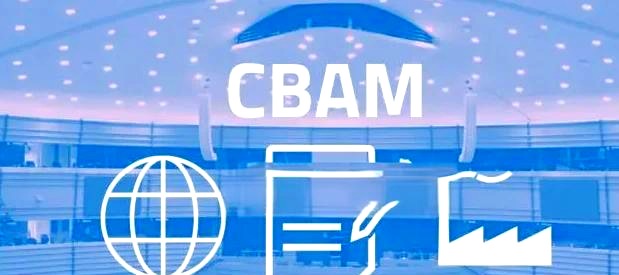European carbon tariffs are coming, how can logistics companies help low-carbon globalization?
Created on 2025.06.03

1. What is CBAM? Why should all companies exporting to Europe take it seriously?
CBAM (Carbon Border Adjustment Mechanism) is an important trade policy introduced by the European Union to implement its climate goals: imposing a "carbon tariff" on the carbon emissions of imported products to ensure fair competition between imported goods and local products in terms of "carbon cost".
Preliminary coverage of industries:
Steel, aluminum, cement, hydrogen, electricity, fertilizer
Subsequent or expanded to fields such as photovoltaic modules, batteries, electronic devices, machinery, etc.
📆 Policy pace:
2023-2025: Transition period, enterprises need to declare product carbon footprint
Starting from 2026: Formally implemented, non-compliance will affect customs clearance and taxes
For a large number of Chinese companies exporting to Europe, this is not only a new tax challenge, but also a test of low-carbon brands and supply chain transparency.
II. What did you overlook? The logistics end also affects the 'carbon bill'
Most companies focus on carbon emissions in the production process, but in reality, CBAM considers the carbon intensity of the entire supply chain. The 'last mile' logistics link in Central and Eastern Europe will also increase or decrease your carbon footprint and affect the brand's environmental compliance image.
The following issues are often overlooked:
📦 Packaging Material: Disposable Packaging=Invisible Carbon Bomb
The massive use of non-recyclable materials such as foam plastics and wooden frames not only increases carbon emissions, but also increases the difficulty of compliance reporting.
🧾 Compliance information breach: Local logistics have no carbon data to track
Most final mile delivery providers are unable to provide carbon emission data and transportation process documents, and there is a lack of chain closure when applying for CBAM.
📍 Distributed delivery: No local warehouse support, lengthy delivery process, higher carbon emissions
Every additional transit from the port to the customer means an increase in carbon emissions and cost waste.
Choosing a logistics service provider that can provide green and environmentally friendly recycling services and carbon emission data tracking will be the key to winning the European market
Three, exporting to Europe is not just about 'sending goods out', but about 'bringing low-carbon in'
CBAM is not a short-term policy, but a long-term trend in export thresholds. It will have a profound impact on businesses in the European market:
🏷️ Brand image (green supply chain procurement preferred)
💸 Cost control (non-compliance will be subject to taxation)
🤝 Collaboration opportunities (European buyers will place greater emphasis on carbon disclosure capabilities)
Choosing logistics partners with compliance awareness, local execution capabilities, and environmental service capabilities will be the key to successful overseas expansion.
Contact
Leave your information and we will contact you.


